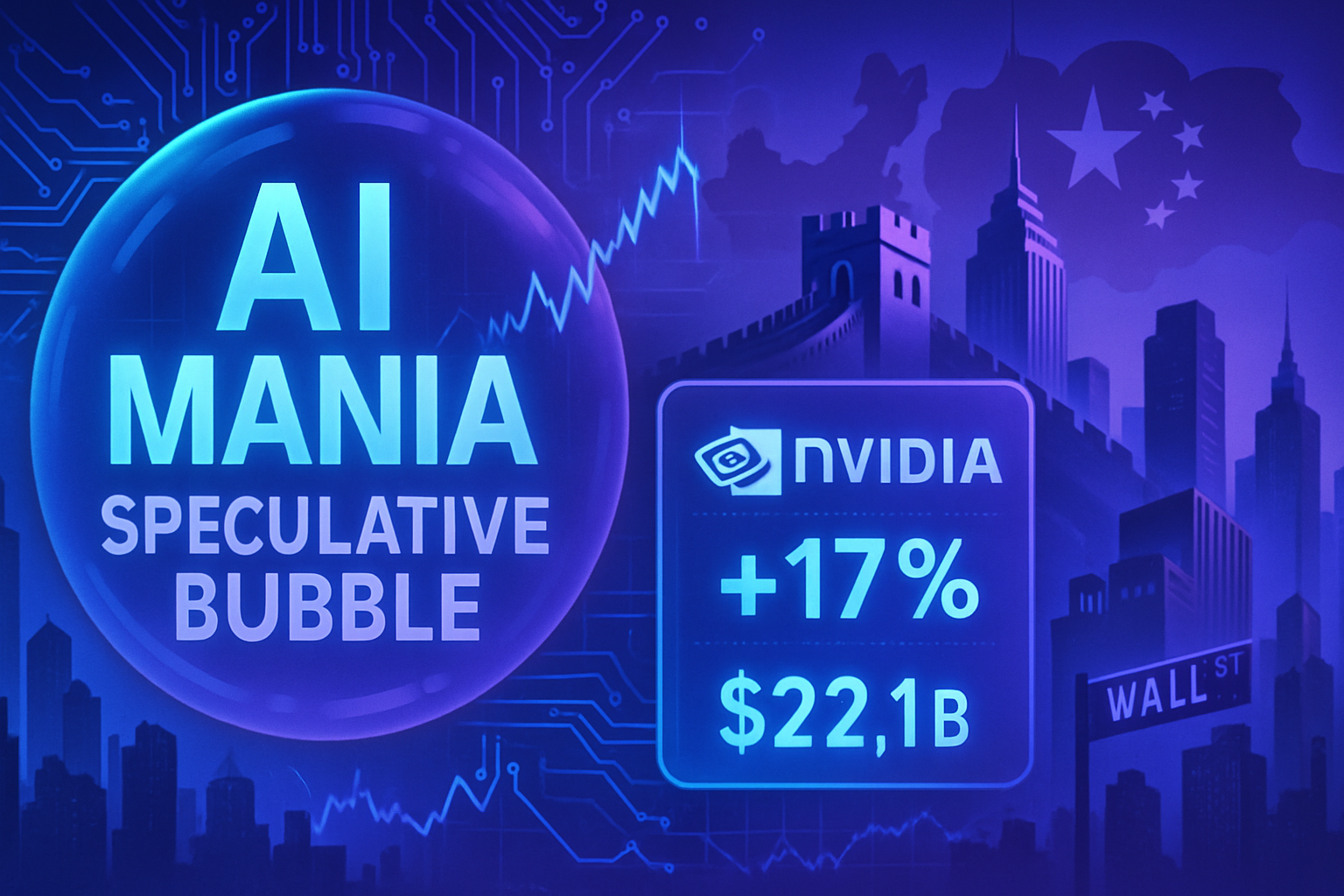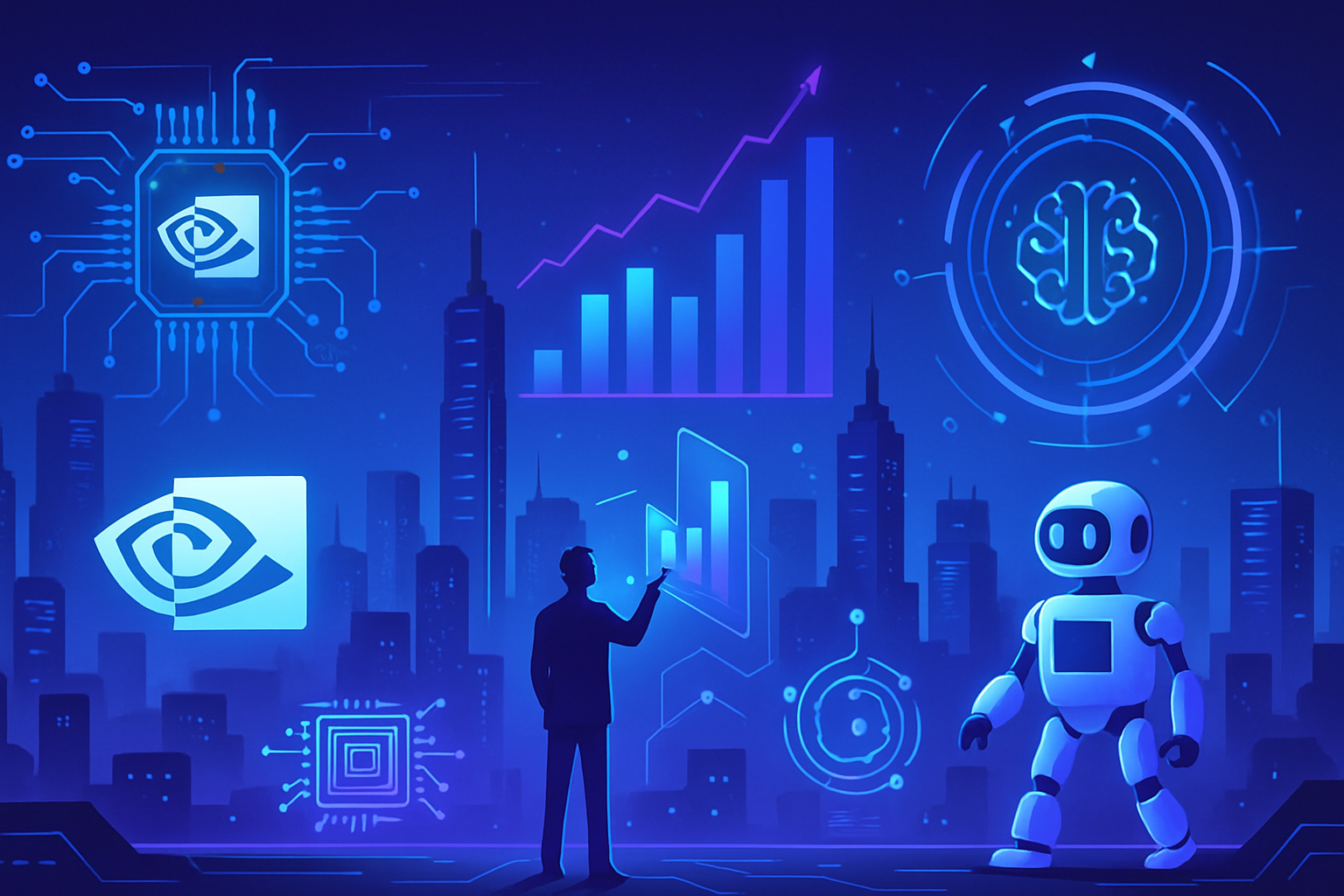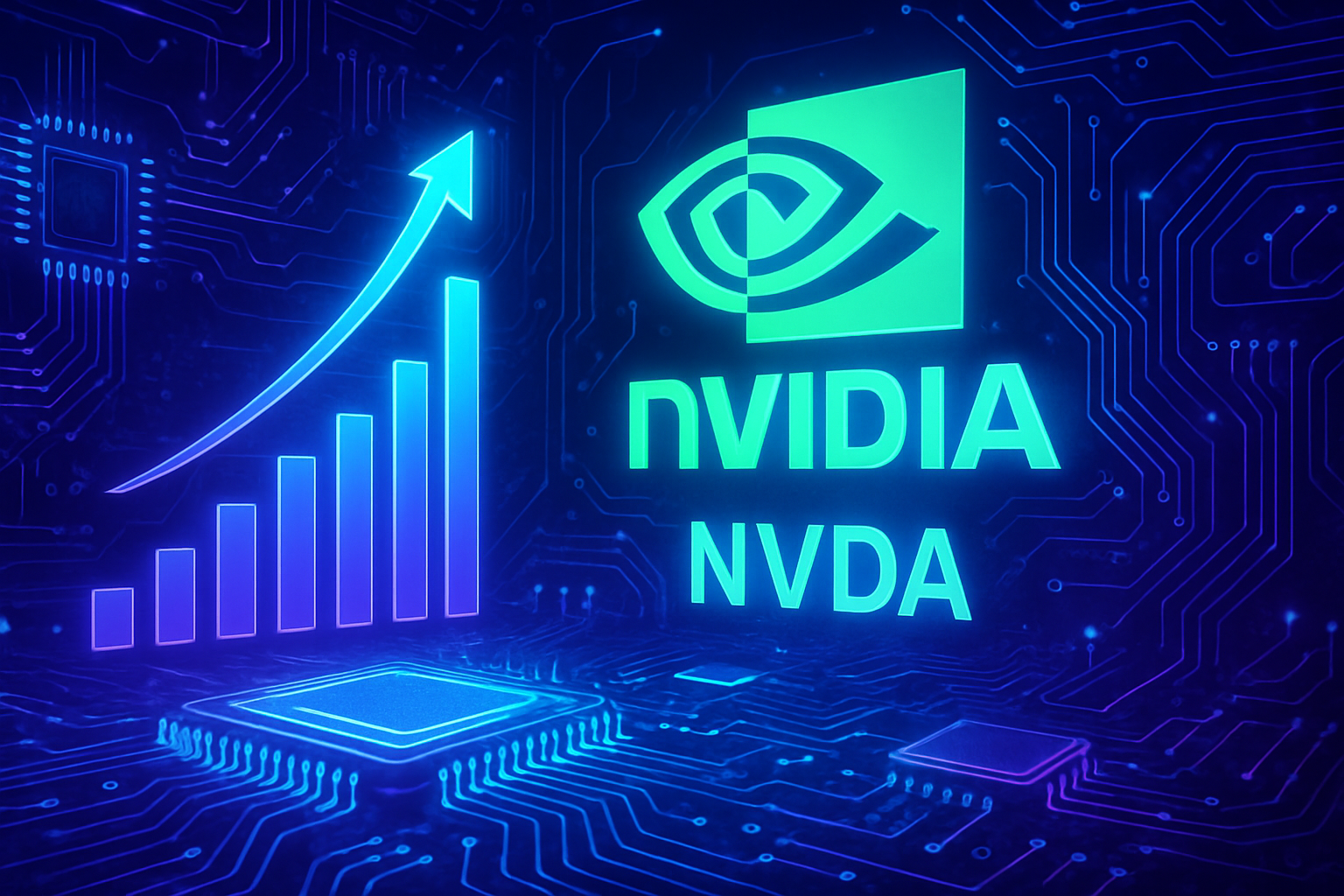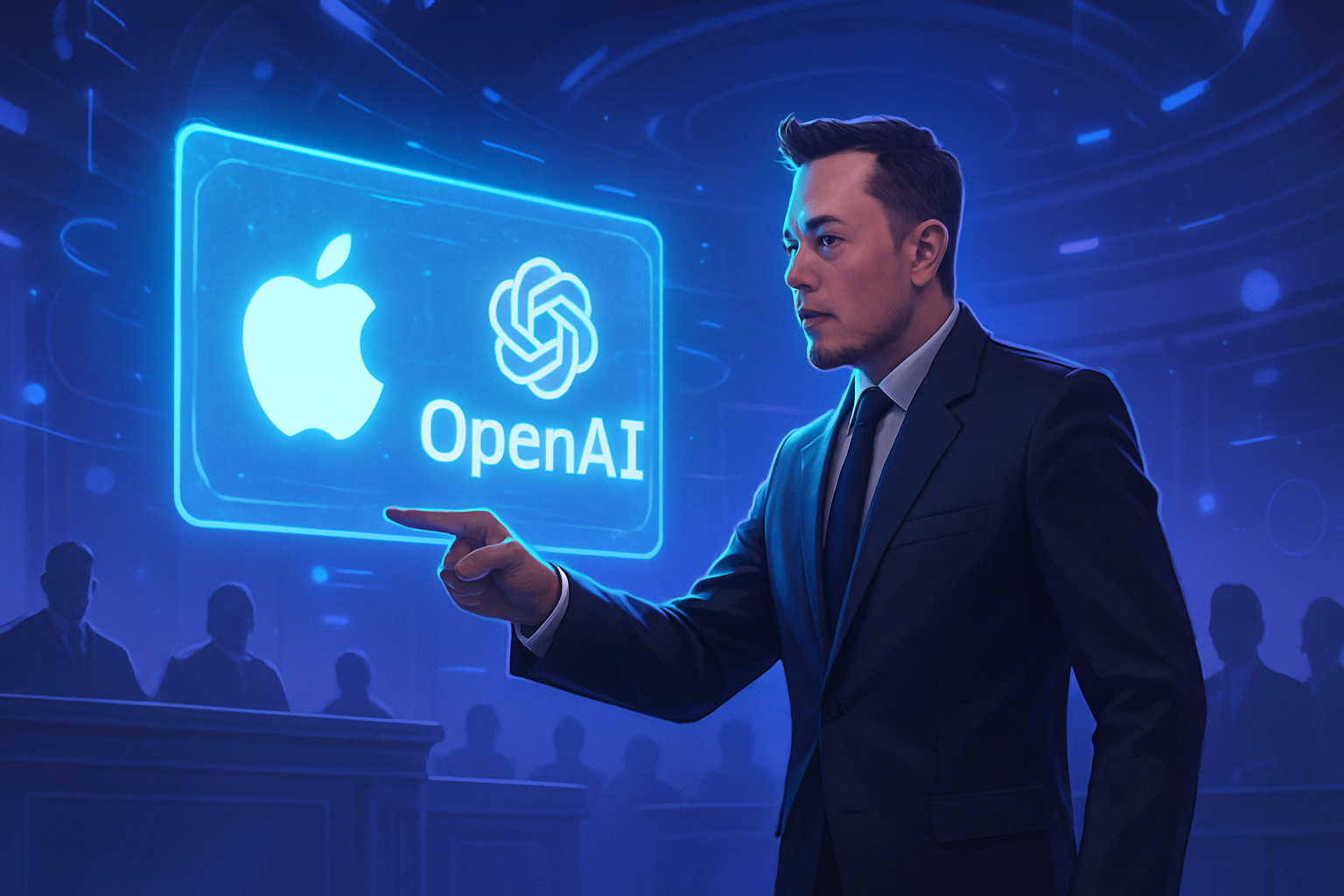The confrontation between Nvidia and Wall Street raises crucial questions. The company’s financial results will be pivotal in judging the potential speculative bubble in the artificial intelligence sector. The complex interaction between Nvidia and the Chinese market becomes a major geopolitical issue. Analysts scrutinize every number, anticipating the impact on the future of AI and on investments. The beliefs around the rise of a transformative AI industry clash with doubts about the sustainability of this growth. The intrigue surrounding the many protagonists exacerbates uncertainties and makes the financial landscape even more volatile.
Investor Expectations for Nvidia
Nvidia’s quarterly financial results are no longer just about the company’s performance. The company, valued at $4 trillion, becomes a true macroeconomic indicator in the context of the artificial intelligence (AI) boom. Comprising 8% of the S&P 500 index market capitalization, Nvidia holds an unprecedented position in the chips powering generative AI. Nvidia’s results are now scrutinized with the same attention as a barometer of the stock market.
Investors are preparing for the announcement of the latest quarterly results, expected after Wednesday’s close. Trading on Nvidia options suggests potential volatility, estimated at 6%, which could mean a possible impact of $260 billion on the company’s market value.
Since the last update communicated to investors in May, Nvidia’s stock has risen by 35%. The anticipation surrounding these results has been exacerbated by growing concerns about a potential financial bubble in the AI-related stocks. The uncertainties surrounding Nvidia’s operations in China add a layer of anxiety for buyers.
Analyst Forecasts for the Second Quarter
Wall Street analysts expect an increase in Nvidia’s revenue, projecting a year-over-year increase of 53%, reaching $46 billion. The results are expected to include earnings per share of $1.01. Data center sales, which account for the majority of Nvidia’s revenue, are expected to peak around $40 billion. The substantial appreciation of the company’s stock makes it potentially precarious territory in case of disappointment at the announcement.
The Double Geopolitical Constraint
Nvidia is at the intersection of geopolitical tensions between the United States and China, complicating its operations. The restrictions imposed by Washington on the export of Nvidia’s H20 chips, designed to comply with U.S. export controls, have had a direct impact on the company. In April, the U.S. administration required licenses for the export of these chips, leading to a $4.5 billion charge related to purchase commitments and unsold inventory.
The repercussions of this situation intensified after the meeting between CEO Jensen Huang and former President Trump. Despite a temporary easing of the restrictions, Nvidia’s export licenses have faced significant delays. Chinese companies, beset with uncertainty, are hesitant to invest in Nvidia chips, with doubts emerging regarding the sensitivity of the information required by the United States.
Recently, pressure has increased further as the Chinese government has discouraged the purchase of these chips, expressing concerns about potential backdoors contained within Nvidia’s technology. This tense atmosphere has compelled Huang to modify his approach, with announcements regarding the cessation of H20 chip production and the development of new solutions tailored to U.S. requirements.
Concerns Surrounding the AI Bubble
Concerns raised by experts, such as Karl Freund, highlight the possibility of a speculative bubble in the AI sector. Nvidia’s value, evaluated at more than 40 times its expected earnings, hinges on growing demand for its high-performing GPUs. The company owes its recent gains to a small number of predominant clients, including Meta, Amazon, Google, and Microsoft, as well as AI startups like OpenAI. A decline in investments from these giants could mean significant losses for Nvidia.
Caution is setting in among investors, with some believing that even if profits could remain solid for several quarters, a market crash could lead to a reversal in chip spending. Analysts fear that rapid growth may not be sustainable over a prolonged period.
Huang is therefore focusing his efforts on changing investors’ perceptions, aiming to highlight various sectors of Nvidia, such as automotive and robotics. This strategic repositioning could allow him to diversify the company’s revenues, mitigating risks associated with a potentially saturated AI market. Meanwhile, stakeholders eagerly await the imminent publication of the results, ready to celebrate or manage the volatility that will follow the announcement.
Common FAQ on the AI Craze and Nvidia’s Results
What are Wall Street’s expectations for Nvidia’s results?
Wall Street anticipates a 53% increase in Nvidia’s revenue for the second quarter, reaching $46 billion, with earnings per share of $1.01. Analysts are particularly focused on sales in the data center sector, which are expected to approach $40 billion.
How does Nvidia’s exposure to the Chinese market influence its financial results?
Nvidia’s exposure to China is complex, as the trade restrictions imposed by the U.S. government and the hesitations of Chinese buyers introduce uncertainty into its revenue potential in that country. This could have a significant impact on the company’s results.
What are the risks of a speculative bubble associated with the AI market?
Concerns about a financial bubble are growing, as the valuation of companies like Nvidia relies on sustained demand for its GPUs. If spending from cloud giants slows down, it could harm Nvidia’s growth, raising fears of a potential market correction.
Why are Nvidia’s results considered a macroeconomic indicator?
Nvidia’s results are seen as a barometer for the overall stock market, as the company represents 8% of the S&P 500 index market capitalization and is a key player in generative AI, thus influencing investors’ expectations about the future of AI.
What impact does the U.S. strategy on semiconductor exports have on Nvidia?
Restrictions imposed by the U.S. on the export of certain Nvidia chips, such as the H20s, constrain international sales and affect the company’s inventory. This has led to a $4.5 billion charge for Nvidia and complicates its sales in China.
How is Nvidia positioned in light of growing concerns about its stock?
Nvidia is striving to diversify its portfolio by focusing on sectors such as automotive and robotics, to reduce its dependence on GPU sales and alleviate investor concerns about overvaluation or an AI bubble.
What factors could convince investors that the AI boom is sustainable?
Investor confidence in the sustainability of AI growth could be strengthened by demonstrating new commercial and industrial applications of AI, as well as strong financial performances from major companies like Nvidia.
What is the importance of trade relations between the U.S. and China for Nvidia?
Trade relations between the U.S. and China directly influence Nvidia’s ability to market its products, and geopolitical tensions can affect its financial situation and ability to generate profits abroad.






